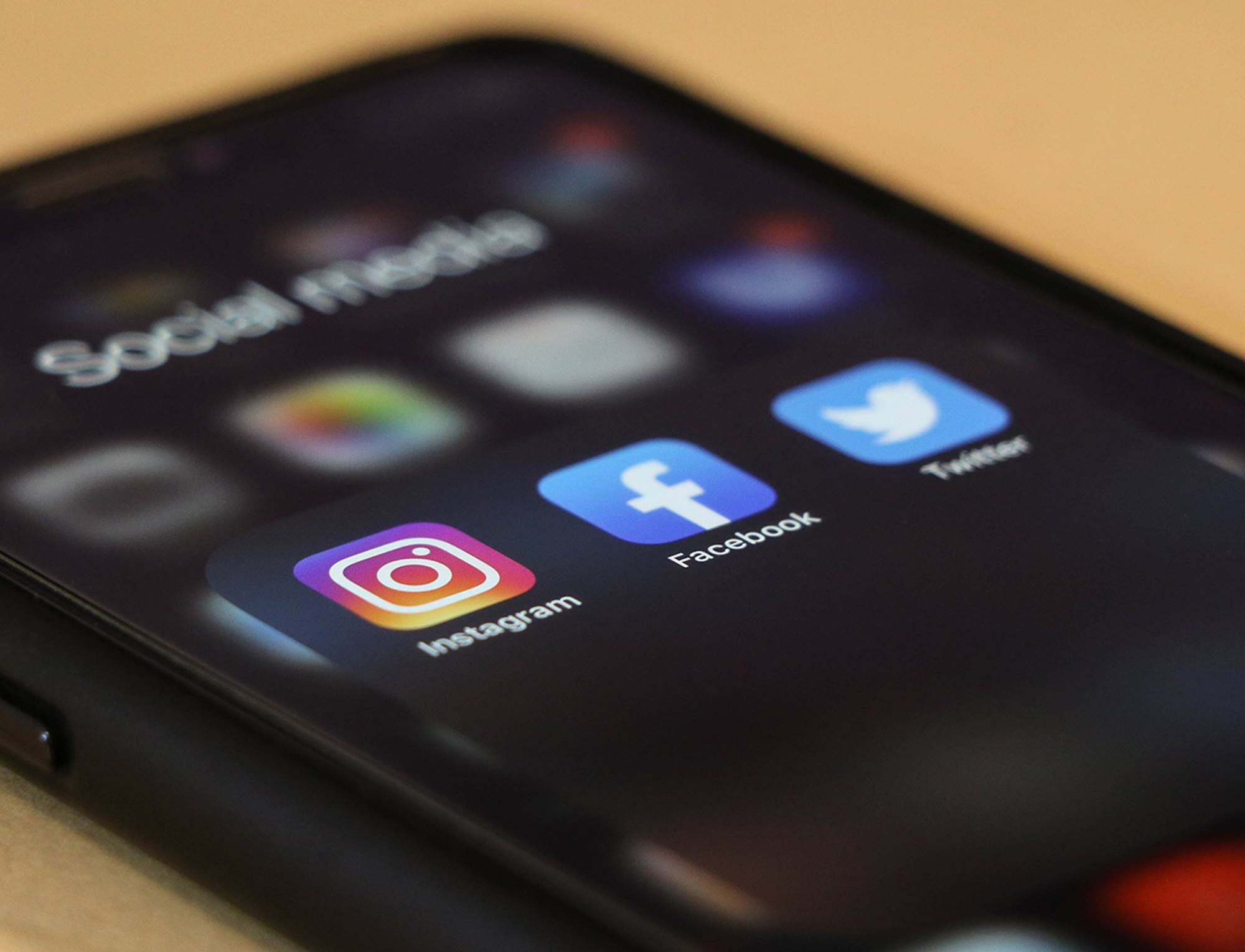Social media has become a vital component of a comprehensive hotel marketing strategy but it’s often challenging to allocate resource to maintain, grow and engage your social following. Typically managed by an individual or small team within a marketing department or the hotel itself, perhaps with agency support, it’s vital that activity is guided by a common set of ideas, or strategy, shared by everyone, to ensure a consistency in your messaging and approach.
1. WHY DO YOU NEED A SOCIAL MEDIA STRATEGY?
Your clients and competitors are online, whether you like it or not, whether you decide to join them or to maintain a more conservative marketing approach. Here’s a few reasons why social media should be part of your marketing strategy in 2020 and where to focus your attention;
- 97% of social advertisers choose Facebook as their most used and most useful social media platform.
- Facebook continues to be the most popular social networking site in terms of number of active users.
- Facebook is the second most popular platform for consuming videos after YouTube.
- The platform also appeals to social marketers as an advertising platform with 70% choosing Facebook ads as the most useful for achieving their goals.
- The number of local business pages on Facebook has reached 65 million.
- The number of monthly active Instagram users has grown to 1 billion.
- In terms of engagement, Instagram is ahead of Facebook with a median engagement rate of 1.60% per post for brands.
Having a social media marketing strategy in place will help you grow your hotel’s brand advocacy and reach potential customers where they spend the most time.
2. DEFINING YOUR HOTEL’S SOCIAL MEDIA STRATEGY
Where do you start when creating a social media strategy for your hotel? Which channels should we use? Who are your target audiences? And most importantly, why are you creating a social media strategy in the first place?
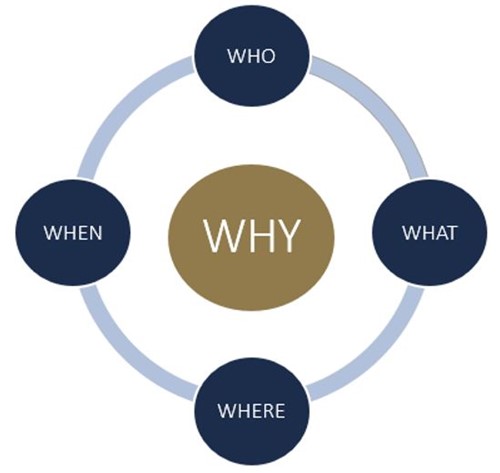
It’s important to consider 4 key elements;
- WHO: Brand advocates vs potential customers.
- WHAT: Content themes e.g. food, rooms, leisure, etc.
- WHERE: Instagram and Facebook, Instagram only, Facebook only, etc.
- WHEN: Frequency of posting, times of posting e.g. morning, afternoon, evening, etc
2.1 Purpose and goals
Before planning what to do with Facebook and Instagram, it’s essential to know the purpose and goals of your social media channels (WHY) and how they fit best into your overall marketing strategy. Let’s start with the goals:
- Sales goals: social media channels are a powerful source of conversions, if audiences targeted are properly refined, and your message is targeted. Although direct bookings are unlikely to happen on social media, since users are not actively looking for your brand when browsing their timelines, it is possible to use remarketing campaigns on social media to turn “thinkers” into “bookers”.
- Cost-saving goals: social media marketing can be cost effective, since advertising on Facebook, for example, is easier, cheaper and quicker than using traditional platforms such as newspapers, street banners, etc.
- Business growth goals: social media is where the conversation with your customer begins. Having a business profile on social channels provides your business with a free, virtual location, available worldwide, open 24/7, and ready to generate bookings. Interacting with your audiences and understanding their needs has never been accessible for hospitality brands.
Once your business and marketing goals are aligned with your social media goals, it’s time to define the purpose of each of your platforms. Some of the reasons why our clients use social media (organic and paid) are:
- To increase brand awareness – to reach potential followers and bookers with appealing ads.
- To improve audience engagement and interaction – to start conversations.
- To build customer retention and loyalty – to grow brand advocacy.
- To increase website traffic – driving relevant people to your website can help increase conversion rates and build your audiences for retargeting campaigns.
- To increase ROI – remarketing campaigns on social media have proven useful when targeting guests during the “looking” and “thinking” stage in travel planning.
- To generate leads – brands use social media channels to increase their email database through competitions, gated content, etc.
2.2 Identify your target audience
Next step is to identify your target audience. It’s quite common for businesses to struggle to tell the difference between potential bookers and brand advocates. Often they’ll focus their social media strategy towards their organic following (i.e. fans / brand advocates) not really knowing why their promotional content doesn’t have the impact or engagement expected.
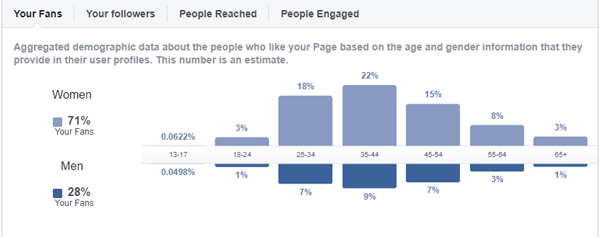
And it makes sense, posting ‘salesy’ content organically on your social channels is the easiest thing to do, and it will get a fair share of awareness, but your fans and followers might not be the right target audience for this type of content. Two takeaways before diving into the message and content themes:
- Know your audience: Identify your brand advocates and bookers (brand lovers vs consumers).
- Find your potential followers: Choose your target demographic to better engage and interact with your community.
The questions below should help you find who you want to target through social media:
- Are there relevant audiences who aren’t getting the information they need from other sources?
- What customer group are you struggling to gain traction with? Can content help you to bridge this gap?
- If you don’t provide content for this audience, would they care or notice?
2.3 The right message and channel
A few months ago, during one of our in-house social media training sessions, we were asked by a client why their organic posts on Instagram weren’t getting any likes, and how to change this. After having a quick scan through their content, we noted that their posts were low-quality images, with a high volume of text, most of them promotional, and with no consistent content structure behind.
The key here is planning and scheduling what to post, where and when. It’s important to note that every channel has its own rules and specific purpose. For example: Instagram is very focused on experiences. Promotional posts can only work if they speak Instagram’s language. In English: high-quality imagery, showcasing people having the time of their lives mid-experience, e.g. afternoon tea / dining, weekend away, etc. If it resonates with your audience and the experiences they desire, it will inevitably perform well.
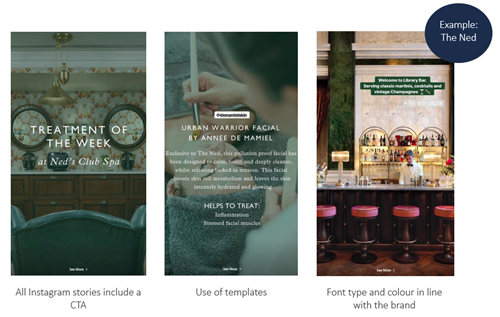
That’s why choosing the right channel and the right message is critical when planning both organic and paid activity on your social platforms.
- Who is your target audience? What are they engaging with the most? What are their interests on social media?
- Which channels are your audience present on/ active on the most? Facebook? Instagram? Twitter?
- What’s the purpose and/or message of your post? Promotional vs Non-promotional.
- What do you expect your audience to do after seeing your post? Likes? Shares? Website visits? Purchases?
It’s very common to find promotional content on Instagram feeds, sitting there with little to no likes. Based on our own experience as social media consumers, promotional content works better through paid social, as opposed to posting it as organic content.
Some top tips to define a solid social media content plan & choose the most appropriate channels:
- Define your visual brand identity on social media, g. use brand colours on Instagram stories, choose a consistent filter for all your posts, etc. See the example below, branded posts (left) versus non-branded (right)
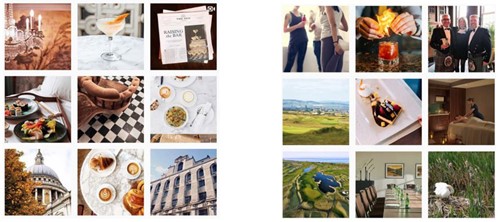
- Rotating through different content themes will keep things interesting for your followers, and help you achieve different goals.
- Use Facebook & Instagram audience insights to know when your followers are active.
- People follow pages on social media to learn and to grow. Audiences will engage 75% more with non-promotional content around hotel and storytelling posts that they can relate to.
- Check your social analytics to decide which content is more suitable for your social channels, e.g.
- MICE related posts work better on LinkedIn.
- Articles work better on Facebook.
- High quality images work better on Instagram.
- News, events and quick updates “happening now” work better on Twitter.
- Test posts at different intervals and times and track results.
- Be creative: Use creative, unique imagery for promotional and non-promotional content to better engage with your audience.
- Experiment: Use incentives, polls and prizes to gain engagement – ensuring you comply with each social media network’s guidelines for posting competitions.
- Post consistently: Create a connective thread to make your business recognisable as people scroll through your feed.
- Repurpose your content by channel, See the following example, “11 Facebook Marketing Features”. Same post, different way of sharing it on social media:
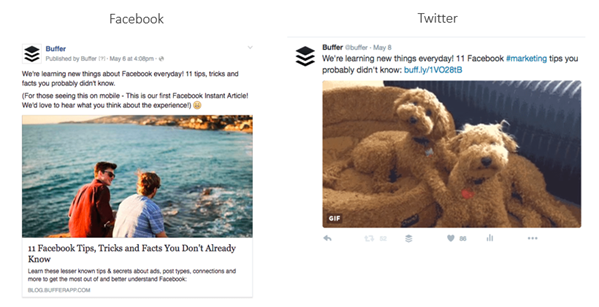
3. THE SECRET INGREDIENT
Of course, most marketing professionals can define a sensible social media strategy based on their business goals and potentially drive some incremental bookings. However in order to get to the core of what works best for your business, you will first have to be willing to test your audiences, creativity and message. Unfortunately, social media is not a one-size-fits-all.
A strategy can help direct your business towards social media success, but to truly stand out and consistently hit your targets in an ever-changing environment, knowledge and experience are key. And that’s where 80 DAYS can support.
With over 15 years of experience and knowledge from working luxury travel and hospitality brands just like yours, we can help you:
- Define your social media strategy
- Help find your visual identity
- Optimise your social media channels to ensure they’re on brand
- Run competitions
- Choose your content themes
- Select the best social media tools (or manage your channels for you)
- Provide tailored training and workshops
- Set up and monitor paid campaigns and ensure a consistent approach with any other online advertising campaigns
- Produce unique, creative content (videos, banners, gifs, etc.)
Need support in setting up a social media strategy for your hotel?







